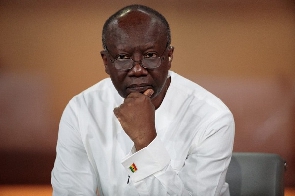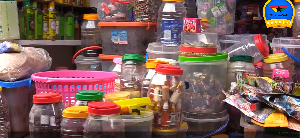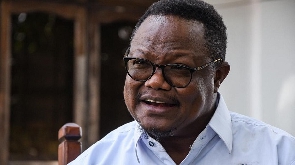The year 2022 can be described as an unprecedented one in the lives of many citizens. From the collapse of businesses, a tumbling currency, fuel price hikes, tariff increments, job losses, to name a few, the economy has been greatly impacted.
Before Ghana began to experience these challenges, the country was touted as a business and investment destination in view of its stable political environment, among others.
But that was short-lived when economic indicators begun to ring the alarm bells and ultimately, compelling the government to seek financial bailout from the International Monetary Fund.
Prior to that, the government had and continues to undertake a number of business deal which it believes would rake in revenue for development.
While these may seem to be working in the interest of the state, some business deals announced by the government have raised eyebrows in the eyes of many and caused some political fallouts.
GhanaWeb Business in this article takes a look at some of the controversial business deals which took place in 2022.
E-Levy
The Minister of Finance, Ken Ofori-Atta, in the November 2021 budget statement reading, announced plans to introduce the controversial Electronic Transfer Levy (E-Levy). The tax measure was intended to generate revenue for the government and widen the country's tax net.
With an impasse in parliament over the tax measure resulting in political fallouts, the government in March this year imposed a 1.5% charge on all electronic transfers above the GH¢100 threshold.
The charging entities for the E-Levy are telecommunications companies, commercial banks, special deposit-taking institutions and Payment Service Providers (PSPs).
The government hoped to rake in about GH¢7 billion from the collection of the 1.5% levy on Mobile Money and other electronic transactions, but the figure was recently revised downwards to about GH¢4 billion.
The Ghana Revenue Authority (GRA) in October this year noted that a total of GH¢328 million has been raked in as E-Levy, which was far below its earlier target.
At the 2023 budget presentation, the government reviewed the rate of the levy from 1.5 percent to 1.0 percent. It also removed the GH¢100 daily threshold on transactions.
National Cathedral project
In May this year, the Minister of Finance, Ken Ofori-Atta, announced that an amount of US$25 million had been released to enable the project consultants to undertake certain aspects of the construction of the National Cathedral.
The project, since its announcement, has courted widespread controversies, condemnations and backlash from the Ghanaian public, CSOs and lawmakers.
But the finance minister said the amount which was tagged as “seed money” was paid in November 2020, to the project consultants.
Ken Ofori-Atta was subsequently hauled before parliament by the Minority caucus under seven grounds of a censure motion against him.
Under these grounds, the National Cathedral project was key in the motion filed.
Meanwhile, the recently published 2021 Auditor-General's report discovered that a total of GH¢142,762,500 from the national coffers was spent on the Ghana National Cathedral project in 2021.
This particular expenditure was however captured under the government’s priority programmes and interventions for the year under review.
Gold-for-oil deal
On November 24, 2022, Vice President Dr. Mahamudu Bawumia announced that the government was negotiating a new policy that seeks to ensure the country purchases imported oil products with gold rather than foreign exchange.
The move, according to him, seeks to address the persistent depreciation of the cedi and reduce dependence on the dollar for the purchase of oil on the international market.
Since its announcement, many citizens and CSOs raised concerns about the policy.
But the said engagement on gold-for-oil barter deal with Emirates National Oil Company was quickly shot down by the firm.
According to a Bloomberg report, the claim by a senior Ghanaian official is untrue.
Bloomberg said an ENOC person said that the assertion is "totally baseless and incorrect,” adding that “there have been no discussions regarding this subject.”
This comes after an economic adviser to Vice President Mahamudu Bawumia, Kabiru Mahama, had earlier said government reached a “tentative” agreement with the Dubai-based oil firm.
But the firm has now outrightly denied the said agreement.
MA/FNOQ
Business News of Saturday, 31 December 2022
Source: www.ghanaweb.com













